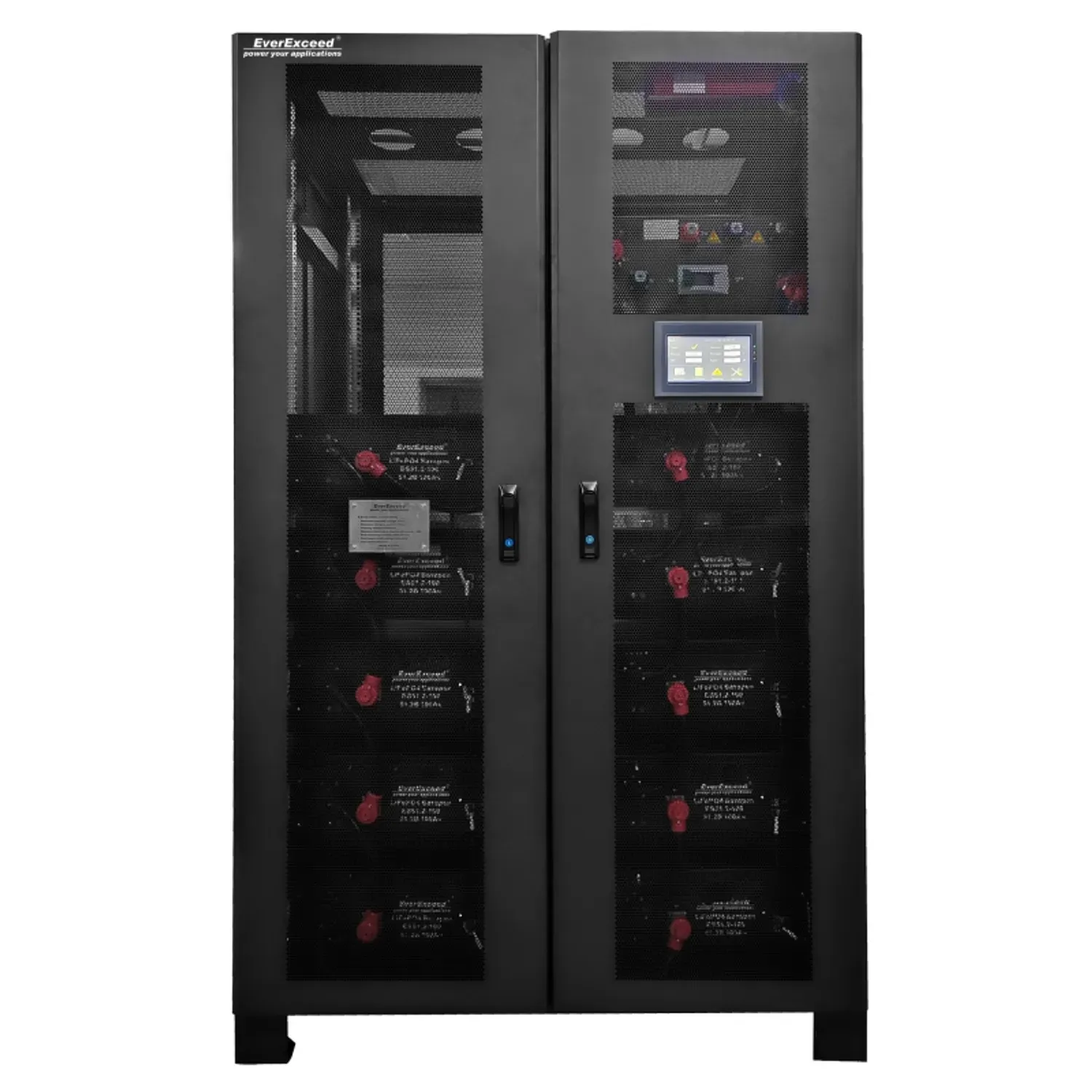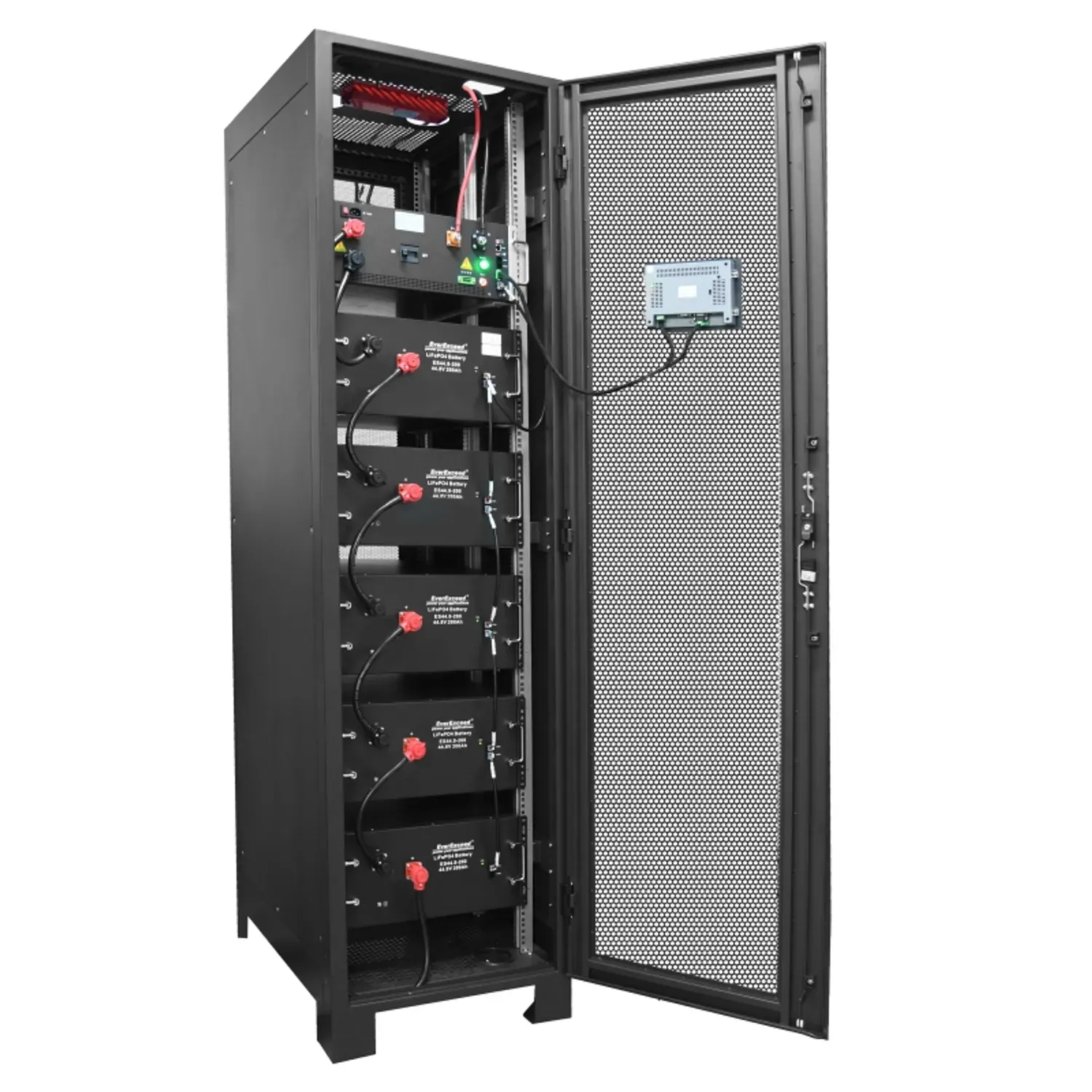
Get a Quote
What Type of Battery is Used for UPS?
In today’s fast-paced digital world, uninterrupted power supply (UPS) systems have become indispensable. Whether you're protecting valuable data, maintaining critical medical equipment, or ensuring the smooth operation of a home office, UPS systems are a crucial component of our modern infrastructure. But what type of battery is used for UPS, and why is it so important? In this comprehensive guide, we will explore the various types of batteries used for UPS systems, their benefits, and how to choose the right one for your needs.
Understanding UPS Systems
Before diving into the specifics of the type of battery used for UPS, it’s essential to understand what a UPS system is and how it functions. A UPS, or uninterruptible power supply, is an electrical apparatus that provides emergency power to a load when the input power source, typically the main power, fails. UPS systems are used to protect hardware such as computers, data centers, telecommunication equipment, and other electrical equipment where an unexpected power disruption could cause injuries, fatalities, serious business disruption, or data loss.
Why Batteries are Crucial for UPS
The battery in a UPS system is its heart, ensuring the system can provide power during outages. Without a reliable battery, a UPS system is merely a bypass that doesn’t fulfill its primary function. Therefore, understanding the type of battery used for UPS is vital for selecting a system that meets your specific needs.
Types of Batteries Used in UPS Systems
There are several types of batteries used for UPS systems, each with its own advantages and disadvantages. The three main types are Valve-Regulated Lead Acid (VRLA) batteries, Flooded Lead Acid (FLA) batteries, and Lithium-Ion batteries. Let’s delve into each type.
1. Valve-Regulated Lead Acid (VRLA) Batteries
VRLA batteries, also known as sealed batteries, are the most commonly used for UPS systems. These batteries are sealed and require minimal maintenance, making them an ideal choice for many applications.
Advantages of VRLA Batteries
- Maintenance-Free: Since they are sealed, they don’t require regular topping up of water, reducing maintenance efforts.
- Safety: The sealed nature of VRLA batteries minimizes the risk of acid spills, making them safer to use in various environments.
- Cost-Effective: VRLA batteries offer a good balance between cost and performance, making them a popular choice for many UPS systems.
Disadvantages of VRLA Batteries
- Shorter Lifespan: Compared to other types, VRLA batteries typically have a shorter lifespan.
- Temperature Sensitivity: They are sensitive to high temperatures, which can reduce their lifespan and efficiency.
2. Flooded Lead Acid (FLA) Batteries
Flooded Lead Acid batteries, also known as wet cell batteries, are the oldest type of rechargeable battery and are still used in some UPS systems.
Advantages of FLA Batteries
- Long Lifespan: These batteries generally have a longer lifespan compared to VRLA batteries, especially when properly maintained.
- High Reliability: FLA batteries are known for their reliability and ability to deliver consistent power over their lifetime.
Disadvantages of FLA Batteries
- Maintenance Required: These batteries require regular maintenance, including checking and topping up electrolyte levels.
- Risk of Spills: Because they are not sealed, there is a risk of acid spills, which can be hazardous.
- Ventilation Needs: FLA batteries need adequate ventilation to prevent the buildup of potentially explosive gases.
3. Lithium-Ion Batteries
Lithium-Ion batteries are becoming increasingly popular for use in UPS systems due to their advanced technology and numerous benefits.
Advantages of Lithium-Ion Batteries
- Long Lifespan: Lithium-Ion batteries typically have a much longer lifespan compared to both VRLA and FLA batteries.
- Low Maintenance: These batteries require minimal maintenance, making them very convenient.
- High Energy Density: They can store more energy in a smaller space, which is ideal for applications where space is limited.
- Temperature Tolerance: Lithium-Ion batteries perform better across a wider range of temperatures compared to lead-acid batteries.
Disadvantages of Lithium-Ion Batteries
- Cost: The main downside of Lithium-Ion batteries is their cost, which is significantly higher than lead-acid batteries.
- Complex Management Systems: They require sophisticated battery management systems to ensure safety and optimal performance.
Choosing the Right Battery for Your UPS System
Selecting the right type of battery used for UPS depends on various factors including the application, budget, maintenance capabilities, and environmental conditions.
Application
- Home and Small Office: For home and small office setups, VRLA batteries are often sufficient due to their low cost and minimal maintenance requirements.
- Data Centers: In data centers, where reliability and uptime are critical, Lithium-Ion batteries are often preferred despite their higher cost due to their longer lifespan and higher energy density.
- Industrial Applications: In industrial settings where long-term reliability and robustness are crucial, FLA batteries might be the best choice despite the need for regular maintenance.
Budget
While VRLA batteries have a lower upfront cost, Lithium-Ion batteries might be more cost-effective in the long run due to their longer lifespan and lower maintenance requirements.
Maintenance
If you have the resources to perform regular maintenance, FLA batteries could be a viable option. Otherwise, VRLA or Lithium-Ion batteries, which require less maintenance, would be more suitable.
Environmental Conditions
Consider the operating environment. Lithium-Ion batteries perform well in a range of temperatures and are more compact, making them ideal for environments with space or temperature constraints.
Future Trends in UPS Battery Technology
As technology evolves, so does the landscape of UPS batteries. Innovations in battery technology are continually emerging, promising better performance, longer lifespans, and lower costs.
Solid-State Batteries
One of the most exciting developments is solid-state batteries. These batteries replace the liquid or gel electrolyte found in traditional batteries with a solid material. This change could lead to batteries with higher energy densities, longer lifespans, and improved safety.
Renewable Energy Integration
The integration of renewable energy sources with UPS systems is also a growing trend. Batteries that can efficiently store and manage energy from renewable sources like solar and wind are becoming more important, particularly as businesses and homeowners look to reduce their carbon footprints.
Conclusion
Selecting the right type of battery for UPS systems is crucial for ensuring reliable and efficient power backup. Whether you opt for VRLA, FLA, or Lithium-Ion batteries, understanding their unique advantages and disadvantages will help you make an informed decision. As technology advances, we can expect even more innovative solutions to emerge, making UPS systems more effective and versatile than ever before.
In this regard, EverExceed stands out as a trusted provider of cutting-edge power storage solutions. With their commitment to innovation and reliability, EverExceed offers a range of UPS systems and data center lithium-ion batteries that provide dependable and efficient backup power solutions. Particularly, EverExceed's LiFePO4 batteries offer significant advantages, including longer lifespan, lower maintenance requirements, and enhanced safety features. For reliable, high-efficiency backup power solutions, trust EverExceed to deliver excellence every time.


